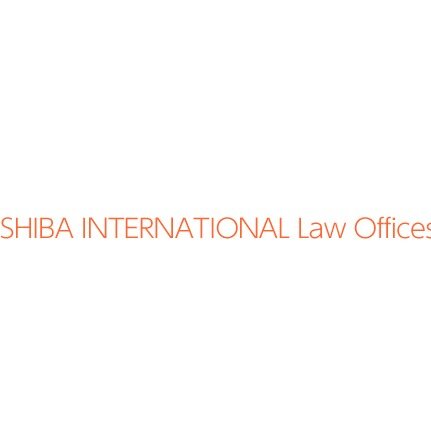Best Criminal Litigation Lawyers in Tokyo
Share your needs with us, get contacted by law firms.
Free. Takes 2 min.
List of the best lawyers in Tokyo, Japan
About Criminal Litigation Law in Tokyo, Japan
Criminal litigation in Tokyo, Japan encompasses all proceedings related to the prosecution and defense of individuals accused of committing crimes. The Japanese legal system is primarily based on the civil law tradition, with influences from various countries. In Tokyo, as in the rest of Japan, criminal law is governed by statutory laws, the most significant of which is the Penal Code of Japan. The Code defines crimes, penalties, and procedures. Trials are conducted in a manner where the judge, not a jury, plays the central role in determining the guilt of the accused, although a lay judge system does exist where citizens participate in serious criminal cases.
Why You May Need a Lawyer
Lawyers are critical in navigating the complexities of Criminal Litigation. Common situations where legal help might be required include:
- Being accused of a crime, whether a misdemeanor or a felony.
- Navigating Japan's unique criminal procedure laws.
- Understanding one's rights while under police custody or investigation.
- Ensuring fair treatment and proper defense strategies in court.
- Handling post-conviction issues, such as appeals or issues related to sentencing.
Local Laws Overview
Key aspects of local laws regarding Criminal Litigation in Tokyo, Japan include:
- The Code of Criminal Procedure regulates the conduct of criminal trials.
- The Constitution of Japan provides for fundamental human rights, including the rights of a defendant.
- Laws state that a person is presumed innocent until proven guilty.
- There are specific rules about evidence collection, detainment duration, and interrogation methods.
- The involvement of lay judges in serious criminal cases allows for citizen participation in the legal process.
- Defendants have the right to have an attorney present during investigations and trials.
Frequently Asked Questions
What should I do if I am arrested in Tokyo?
If you are arrested in Tokyo, it is essential to remain quiet and ask to speak with an attorney immediately. Any statements you make could be used against you in court, and you have the right to legal representation.
How does the Japanese criminal justice system differ from other countries?
The Japanese system focuses on rehabilitation and consensus rather than punishment, and the conviction rate in completed cases is notably high. Additionally, Japanese prosecutors tend to only bring charges in cases where they are confident of a conviction, which contributes to this high conviction rate.
Are there trial by jury in Japan?
In 2009, Japan introduced a "lay judge" (similar to jurors) system for certain serious criminal cases, where six lay judges are selected from the electorate to work alongside three professional judges.
Can I get police bail in Tokyo?
Bail is available, though it's more limited compared to some other jurisdictions. It is generally difficult to obtain and can be expensive, as the accused must show they are not a flight risk and will not tamper with evidence or witnesses.
What are my rights during police questioning?
You have the right to remain silent and the right to counsel. You are also afforded the right to have an interpreter if you cannot fully understand Japanese.
How long can police detain me without charges?
The police can detain an individual for up to 72 hours. Following this, a prosecutor can request a judge's permission for further detainment of up to 10 additional days, which can be extended once more for another 10 days.
What is the role of a defense attorney?
A defense attorney provides legal representation for the accused, ensures their rights are protected, advises on legal procedures, assists in evidence gathering, and formulates the best possible defense strategy.
Can foreigners get a fair trial in Tokyo?
Foreign nationals are entitled to a fair trial in Tokyo. However, it is advisable to hire an attorney who understands the intricacies of the Japanese legal system and can navigate language and cultural barriers.
Is the death penalty still enforced in Japan?
Yes, the death penalty is still applied in Japan, mostly for serious crimes such as multiple murders.
What should I do if I believe my trial was unfair?
If you believe your trial was unfair, you should speak with your lawyer about the possibility of an appeal. There are strict deadlines and procedures for filing an appeal, so timely action is critical.
Additional Resources
Resources that can be helpful for someone in need of legal advice in the field of Criminal Litigation in Tokyo include:
- The Japan Federation of Bar Associations (JFBA)
- Tokyo Public Law Office
- Legal Affairs Bureau
- Your embassy or consulate for assistance and information
- The Japan Legal Support Center (Houterasu)
Next Steps
If you require legal assistance in criminal litigation, take the following steps:
- Contact a criminal defense attorney with experience in the Japanese legal system.
- Gather any documentation that might be relevant to your case.
- Avoid discussing your case with anyone other than your attorney to prevent self-incrimination.
- Seek the help of your embassy or consulate if you're a non-Japanese national.
- Consider contacting a support organization if you face language or financial barriers.
Lawzana helps you find the best lawyers and law firms in Tokyo through a curated and pre-screened list of qualified legal professionals. Our platform offers rankings and detailed profiles of attorneys and law firms, allowing you to compare based on practice areas, including Criminal Litigation, experience, and client feedback.
Each profile includes a description of the firm's areas of practice, client reviews, team members and partners, year of establishment, spoken languages, office locations, contact information, social media presence, and any published articles or resources. Most firms on our platform speak English and are experienced in both local and international legal matters.
Get a quote from top-rated law firms in Tokyo, Japan — quickly, securely, and without unnecessary hassle.
Disclaimer:
The information provided on this page is for general informational purposes only and does not constitute legal advice. While we strive to ensure the accuracy and relevance of the content, legal information may change over time, and interpretations of the law can vary. You should always consult with a qualified legal professional for advice specific to your situation.
We disclaim all liability for actions taken or not taken based on the content of this page. If you believe any information is incorrect or outdated, please contact us, and we will review and update it where appropriate.









